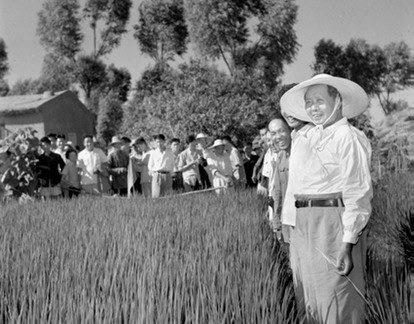A star is assigned to books of unusual merit, determined by the editors of Kirkus Reviews.
A direct, hard-hitting study of China’s Great Leap Forward in light of newly opened archival material.
Veteran China historian Dikötter (Humanities/Univ. of Hong Kong, Modern History of China/Univ. of London; The Age of Openness: China Before Mao, 2008, etc.) parses this staggering tragedy into three manageable, comprehensive components: Mao Zedong’s bloody-minded resolve to implement the accelerated collectivization of the countryside, and the stifling of all opposition; the effects of these devastating policies on agriculture, industry, trade, housing and nature; and the catastrophic human toll (“at least 45 million people died unnecessarily between 1958 and 1962”). Vying bombastically with the Soviet Union to overtake the Western imperialistic powers in economic production, Mao was bent on purging opposition and prodding provincial cronies to harness China’s real wealth—its huge labor force—in order to transform the countryside in schemes of rapid, reckless modernization. China was “in the grip of gigantism,” and mass mobilization was needed to fulfill inflated targets for agricultural and industrial output. Communes tried to outdo each other in zeal, and laggards were paraded in front of others to be humiliated and tortured. Deep ploughing and close cropping, supposed “innovative methods,” reaped woeful yields, and the “command economy” forced villagers “to sell grain before their own subsistence needs were met.” Yet critics were cowed into silence, and Mao delivered only glowing reports to the public. Despite trickling news of crop failure, China met foreign-trade commitments by exporting grain. But by 1960, due to “unprecedented natural catastrophes,” they had to adopt a humiliating policy of importing grain from capitalist markets. Meanwhile, people were dying in droves, and Dikötter delivers a scathing litany of abuses visited on the most vulnerable—children, women and the elderly.
A horrifically eye-opening work of a dark period of Chinese history that desperately cries out for further examination.

